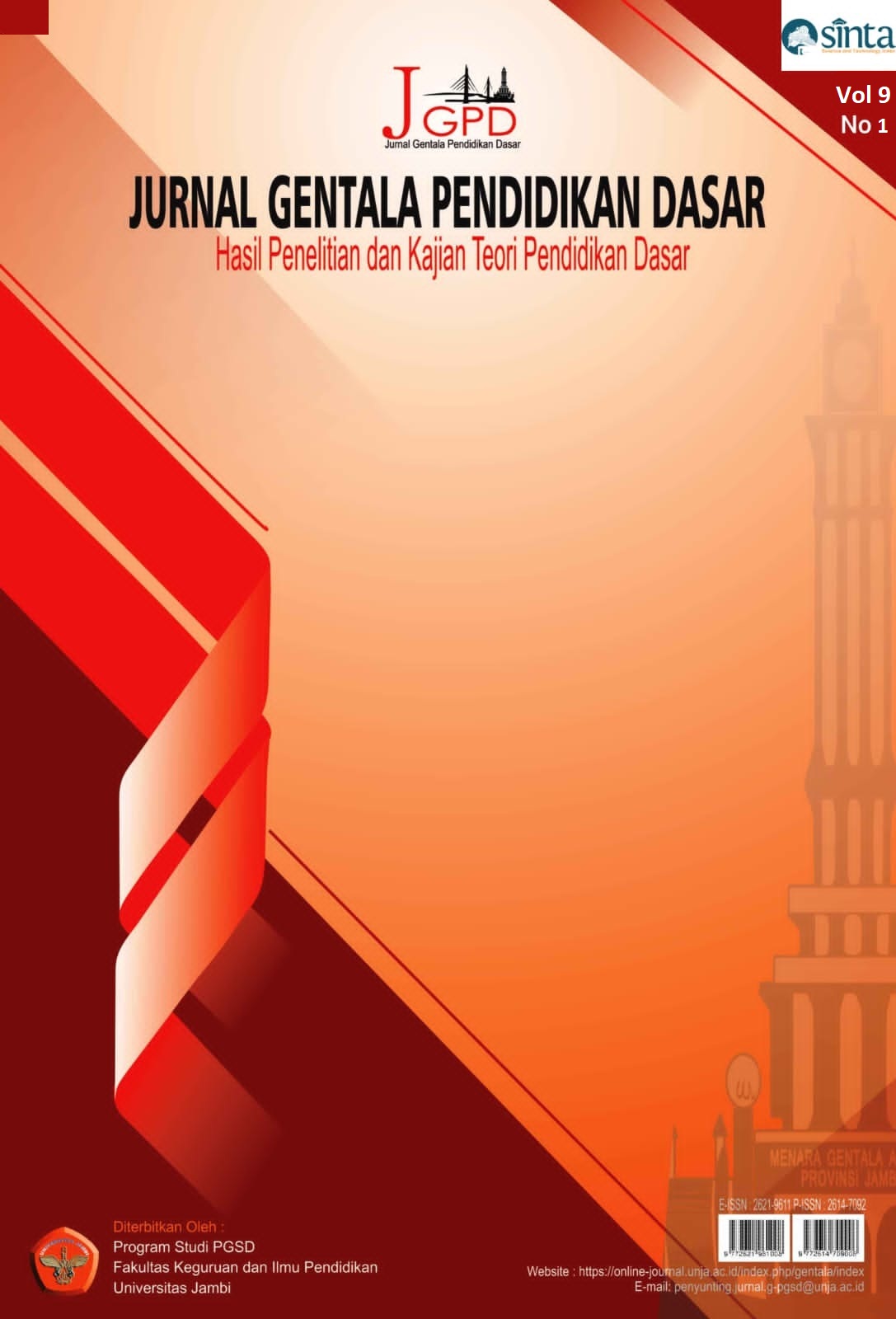Transformasi Paradigma PKn Menuju Pengembangan Karakter yang Demokratis dan Partisipatif di Sekolah Dasar
DOI:
https://doi.org/10.22437/gentala.v9i1.32962Keywords:
Transformation, paradigm, citizenshipAbstract
This research aims to explore the transformation of the Civic Education (PKn) paradigm in elementary schools, as well as identifying the strategies and innovations needed to implement it effectively. This research uses a qualitative approach with a case study design at UPT SPF SDN 101990 Bangun Purba. The results of the research show that there is a transformation of the Civics paradigm in elementary schools, from the old paradigm which focuses on mastering civic knowledge to a new paradigm which emphasizes the development of democratic and participatory citizen character. This transformation is characterized by an emphasis on developing critical thinking skills, problem solving and democratic decision making, as well as developing the character of participatory citizens. This research concludes that there needs to be a change in the implementation of Civics in elementary schools, from the old paradigm which is indoctrinative in nature to a new paradigm which emphasizes the development of civic competence. The implication is the need to increase the understanding and skills of class teachers in Civics learning content, adapt the curriculum and teaching materials, as well as support from schools, parents and the community to create a learning environment that is conducive to the development of civic competence.
Downloads
References
Branson, M. S. (2018). The role of civic education. Center for Civic Education.
Braun, V., & Clarke, V. (2018). Using thematic analysis in psychology. Qualitative Research in Psychology, 3(2), 77-101.
Budimansyah, D. (2019). Penguatan pendidikan kewarganegaraan untuk membangun karakter bangsa. Widya Aksara Press.
Creswell, J. W., & Poth, C. N. (2018). Qualitative inquiry and research design: Choosing among five approaches (4th ed.). Sage Publications.
Dany, S. A., Putri, N. A., Karimah, N., & Marini, A. (2023). Pembelajaran Ppkn Untuk Pembentukan Karakter Siswa Sekolah Dasar. Jurnal Pendidikan Dasar dan Sosial Humaniora, 2(8), 997-1008.
DeWalt, K. M., & DeWalt, B. R. (2016). Participant observation: A guide for fieldworkers (3rd ed.). Rowman & Littlefield.
Dewey, J. (2016). Democracy and education. Macmillan.
Kemendikbud. (2016). Peraturan Menteri Pendidikan dan Kebudayaan Republik Indonesia Nomor 20 Tahun 2016 tentang Standar Kompetensi Lulusan Pendidikan Dasar.
Patton, M. Q. (2015). Qualitative research and evaluation methods (4th ed.). Sage Publications.
Rubin, H. J., & Rubin, I. S. (2016). Qualitative interviewing: The art of hearing data (3rd ed.). Sage Publications.
Westheimer, J., & Kahne, J. (2018). What kind of citizen? The politics of educating for democracy. American Educational Research Journal, 41(2), 237-269.
Winatputra, U. S. (2018). Pendidikan Kewarganegaraan: Refleksi Historis-Epistemologis dan Rekonstruksi untuk Masa Depan. Tangerang Selatan: Universitas Terbuka.
Wulandari, Z. R., Azzahra, N., Wulandari, P., & Santoso, G. (2023). Memperkuat Jiwa Kewarganegaraan di Era Digital dengan Pendidikan Kewarganegaraan yang Komprehensif. Jurnal Pendidikan Transformatif, 2(2), 415-424.
Yin, R. K. (2018). Case study research and applications: Design and methods (6th ed.). Sage Publications.
Yunita, S., Hasugian, P. M., Simanullang, T. L., & Nababan, L. (2023). Tanggung Jawab Mahasiswa terhadap Kebersihan Lingkungan di Fakultas Ilmu Sosial Universitas Negeri Medan. Journal on Education, 6(1), 6037-6043
Downloads
Published
How to Cite
Issue
Section
License
Copyright (c) 2024 Khairul

This work is licensed under a Creative Commons Attribution-NonCommercial-ShareAlike 4.0 International License.













